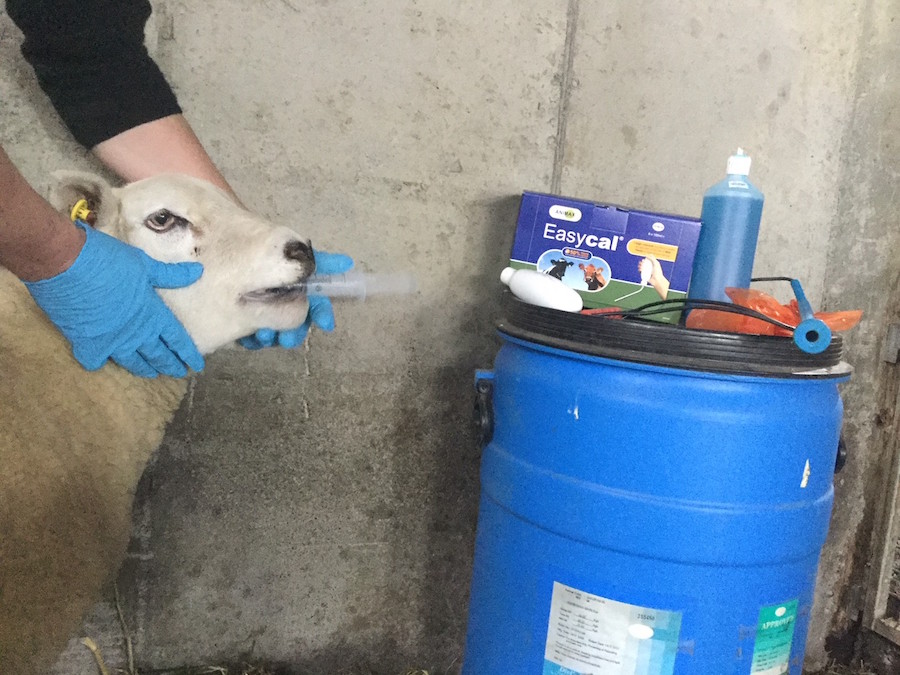For much less assistance with lambing and fewer dead or orphan lambs, at less than £1.50/ewe, sheep farmers can borrow a trick from dairy farmers by giving ewes an oral calcium supplement at the onset of labour. Backed by personal experience in his Texel flock, this advice comes from Flor Ryan, sheep specialist with Animax.
“Just like dairy cows, ewes can become calcium deficient around and after giving birth,” he explains. “This is complex and factors include the effort involved in lambing, reduced feed intake combined with the onset of milk production. But unlike cows, which may become recumbent and die from acute milk fever, the condition in sheep is usually sub-clinical and harder to spot. The typical consequence can be slow labour and poor health after lambing.”
Other factors making calcium supplementation advisable include ewes carrying twins or triplets, too fat or thin, lame and older ones or those with a difficult previous lambing. On farms with cattle as well, all the same principles apply and the oral supplement Easycal is formulated for both species.
In sheep, guideline amounts are 40ml to small ewes and 50ml for big ones. In a 185ml (⅓ rd pint) plastic bottle with tube applicator, it contains 50% more calcium than most other supplements. This makes one shot/application usually enough, providing 14-18g of easily absorbed calcium over 12-15 hours. It can be given by the applicator tube or similar between teeth and cheek or over the back of the tongue, or top dressed onto feed. Flor Ryan advises that ideal timing is from waters breaking to the onset of contractions and it is also helpful after lambing.
“The effects are explained by calcium’s role in muscle and nerve functions,” he explains. “Even sub-clinical deficiency weakens muscle tone and strength, which are so critical at lambing.”
“Maintaining peak muscle function enables a quick and safe birth, minimal assistance, ample milk, strong lambs and, sooner rather than later, better financials.”
Farmers can get more information from their local representative.


